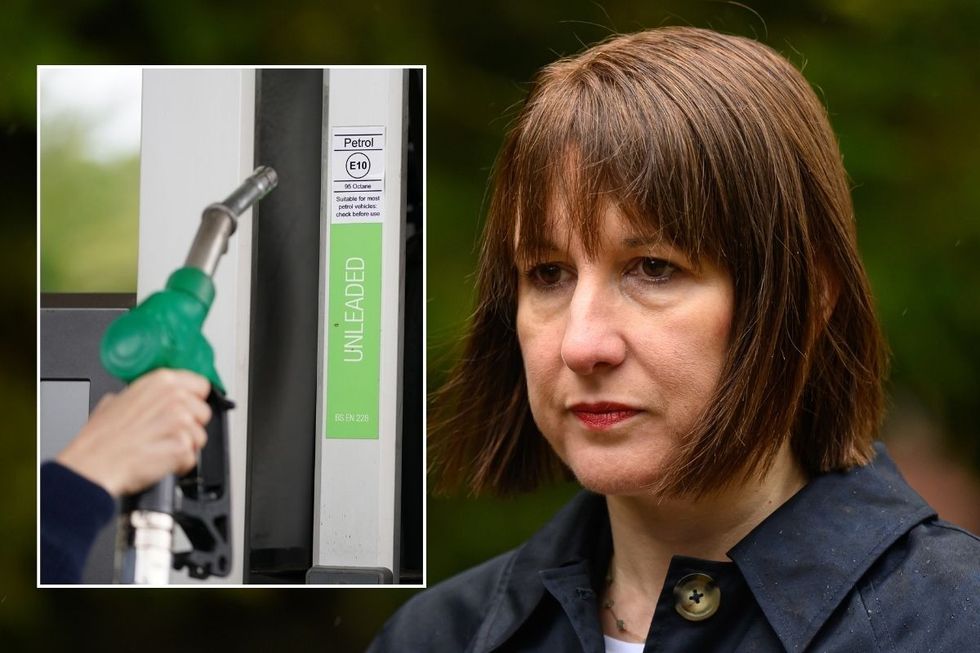An expert is calling on the Government to introduce tax incentives, rather than tax hikes, to ensure motorists and businesses are not harmed.
Chancellor Rachel Reeves will unveil details of the new Labour Government’s first Budget, much of which could have a dramatic impact on motorists.
Earlier today, Prime Minister Keir Starmer said Britons must “embrace the harsh light of fiscal reality” as the UK faces “unprecedented circumstances”.
Paul Holland, Managing Director for UK/ANZ Fleet at Corpay, including UK brand, Allstar, highlighted how small and medium-sized enterprises (SMEs) are the backbone of the UK economy and that they need to be protected.
Do you have a story you’d like to share? Get in touch by emailing[email protected]

Chancellor Rachel Reeves could introduce a hike to fuel duty
PA
He noted that they play a vital role in providing jobs and that the Government should ensure that any changes announced in the Budget should not harm them.
Despite this, Holland warned that experts and many SMEs were expecting Rachel Reeves to make changes that could impact businesses.
He said: “This is because the Labour manifesto committed to publishing a roadmap for business taxation within six months of the election, and the Chancellor has confirmed this will come during the Autumn Statement.
“The headlines are dominated by how to raise funds to fill the £22billion ‘Budget black hole’.
“However, with the Government already ruling out increases to income tax, employee national insurance and VAT, the Chancellor is likely to look to other areas to generate revenue.”
Holland said this would likely be in the form of employer national insurance, various duties, including fuel, and potentially some sector-specific proposals.
Many have already touted that the Government could target fuel duty as a way to claw back public finances after the previous Conservative administration left a deficit worth more than £22billion. Some have suggested that the Government will hike fuel duty by 7p per litre.
Former Chancellor Rishi Sunak first introduced the fuel duty cut in 2022, slashing the rate by five pence per litre after rising petrol and diesel costs. It was again extended in 2023 and in March earlier this year.
Despite the tax cut, very few motorists actually saw a drop in price at the forecourts, with the Competition and Markets Authority estimating that major retailers and supermarkets held back £900million worth of savings in 2022.
The expert said business cashflow would be “capital” and that the Government should do all it can to ensure motorists can remain on the road, especially if they drive as part of their job.
Although changes are expected to be made which could negatively affect businesses, Holland urged the Government to take steps to “take action”.
He added: “Increased financial pressure on businesses could be too much to bear for some without cutting staff, and these are the companies who need targeted help from the Government.
LATEST DEVELOPMENTS:
- Volkswagen could shut three factories and cut thousands of jobs amid mass panic – ‘We are not earning enough’
- Motorists could be slapped with ‘lifetime driving ban’ for breaking road rules under new proposals
- Driving licence plans that could ban motorists from carrying passengers ruled out – ‘Really disappointed!’

Petrol and diesel drivers could end up paying more at the pump
PA
“For example, tax incentives or greater access to finance could be critical areas that could unlock growth and push our economy forward. We strongly advise the Government to be thinking in this same frame of mind.”
An HM Treasury spokesperson said: “Following the spending audit, the Chancellor has been clear that difficult decisions lie ahead on spending, welfare and tax to fix the foundations of our economy and address the £22billion hole in the public finances left by the last Government.
“Decisions on how to do that will be taken at the Budget in the round.”